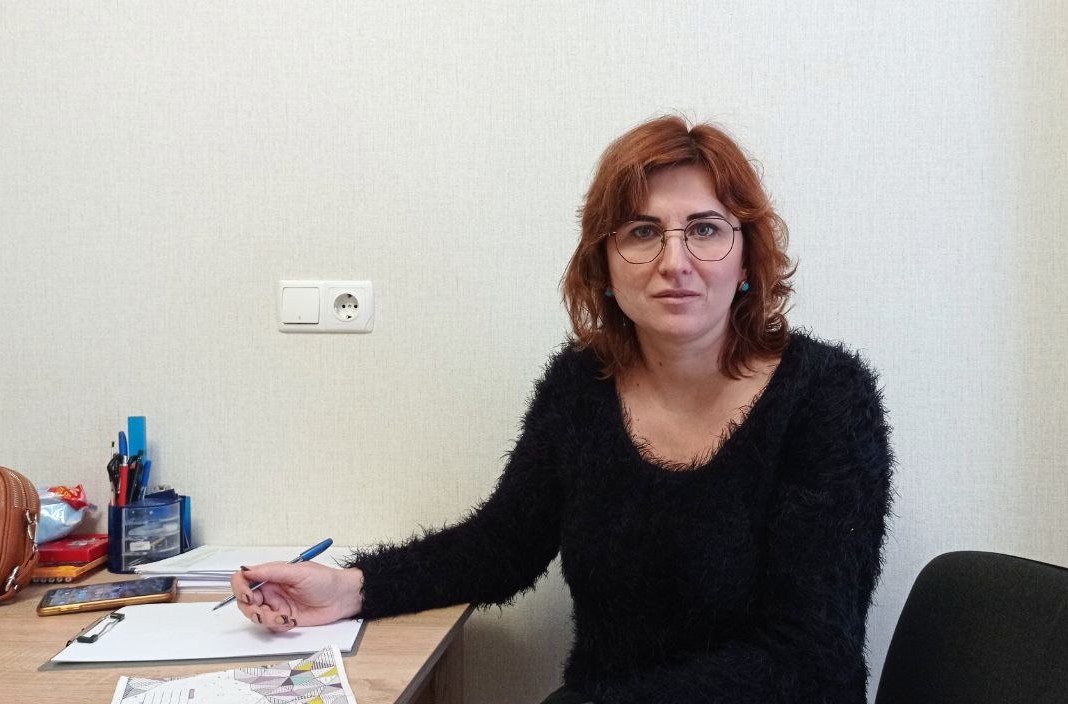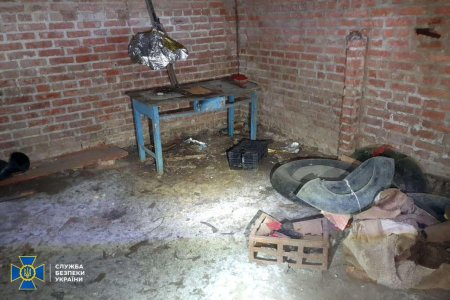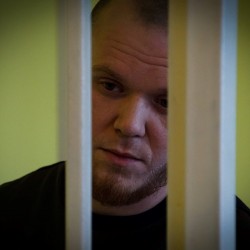![© 777 Bond vector / Shutterstock [психологічна допомога стрес війна] © 777 Bond vector / Shutterstock](https://khpg.org/files/img/1608816147.png)
The war has changed many things. In particular, the methods of our work. Over the past year, the Kharkiv Human Rights Protection Group has been providing comprehensive aid to our clients in addition to traditional legal assistance. Purely legal aid usually does not satisfy the needs of the victims of war crimes. We receive people who not only suffered violations of their rights but also lost almost everything — their homes, relatives, health, and sense of security. That is why KHPG is building a referral network. This means that after consulting with a lawyer, the victim will be provided with financial assistance, if necessary, or simply accompanied to an official to restore documents or to a doctor to heal wounds. An important part of this comprehensive assistance is psychological service. Most people who come to KHPG’s reception centers urgently need psychological help.
“...I have seen so much destruction and grief in recent months that I felt something inside me burning out,” says Kharkiv volunteer O. She has to travel almost every day to the de-occupied villages, documenting the crimes of the Russians and delivering humanitarian aid to those who are still living among the ruins. “In December, I ran into the KHPG reception on business and eventually went to see the psychologist who receives there. I have already been to her several times. We seem to exchange simple words, but it relieves stress. I don’t have enough time to visit a psychologist regularly, but I hope to go again”.
KHPG opened its first psychological aid office in October 2022, with four specialists starting to work in Kharkiv. Their clients include not only people who lost their homes due to Russian shelling, escaped from captivity and occupation, and suffered terrible torture but also volunteers, KHPG employees, and their family members, even those who are now abroad (if necessary, sessions are held online). Every Ukrainian today feels the burden of psychological trauma.
“We organized our reception office in Kharkiv so that the psychologist’s room was next to the lawyers’ room. And if a lawyer providing the legal consultation feels that a person needs psychological help, they are taken to the next room,” says KHPG director Yevhen Zakharov. “In these three months, our psychologists have done much more than was planned. We realized that psychological help is essential; many people need it now, and this direction of our activity should be expanded. Our partners at DIGNITY (Danish Institute Against Torture) proposed a project to expand providing psychological assistance to the Kyiv and Lviv regions.
’Everyone cries about different things’
Counselor psychologist Natalia Zakharchenko works in the KHPG Kharkiv reception office and has helped 35 clients in just one month, spending 72 hours of work.
“Some 20-30 percent of clients come only once. People need to calm down and relieve stress. They get it and leave,” Natalia says. “For some, two or three visits is enough. For example, guys who were in captivity come to me. They need two or three sessions to remove the symptoms of PTSD (post-traumatic stress disorder). And we are doing this. And some need long-term help. Elderly people come, and they have psychological “baggage” that they pull with them through life. They realize that they can unload, talk, and be listened to here”.
— What do people come with?
“With complaints of PTSD, acute stress, obsessive thoughts and ideas. I have a client who has an air raid alarm on her phone. When she hears this sound, she feels sick; she experiences physiological manifestations of stress.
In addition, war and stress exacerbate mental disorders that people had in their previous peaceful lives. Everyone is crying now. What are the tears about? Everyone cries about different things. Some have not lost any relatives or property, but they anyway cry when, for example, they see the military. Each person has their own psychological triggers. Some people are afraid of a Russian offensive and don’t sleep at night because of this.

Many people come to discuss their divorces against the background of the war. This is a big problem. There are a lot of them! Many women left abroad while their husbands stayed in Ukraine. Not all relationships have survived the test of separation. In addition, some women who stayed in Ukraine turned out to be stronger than their husbands. It is difficult for these women to see a weak partner side by side.
But most clients are people whose property was destroyed. An interesting observation is that people who work as employees can cope with this loss more easily. But people who had their own business before the war, even a small one, now have a hard time... Especially older people. I have a client from the Kharkiv region who is 70 years old. She had a business, tractors, Agri machinery, and a big house. Everything burned down. She says: “I can’t do anything anymore! I won’t do anything...” And we answered her: “Then who will do it? If not you, then who?” The person has experience and connections and knows what to do and how to do it. We try to find alternatives and think together about where to look for investors... People see hope and light ahead.
We work with people whose relatives have died. They also need to be given some light... To find an individual story, something that can provide them with comfort. Some women lost their sons...”
— What can comfort a mother whose child has died?
“Among my clients is a woman who works in a maternity hospital. She says: “Each time I take part in delivering a baby, I think: maybe my son was born somewhere?” Some people believe in the transmigration of souls. Some people believe in life after death. In general, I always ask my clients about attitudes toward God.”
— What awaits us after the war? What will the psychological health of Ukrainians be?
“Many people who lived near the frontline and survived the shelling will have clear signs of post-traumatic stress disorder. But the most challenging situation, I think, will be with the military, which will return from the war. Many of them suffer from PTSD. Although, of course, it all depends on the peculiarities of the psyche of each individual. For veterans, it will definitely be necessary to create rehabilitation psychological programs and centers where people who have gone through similar traumatic experiences can talk on an equal footing, in a circle of their own.”
— How can each of us take care of our psychological health today?
“It is essential to separate what we can influence from what we have no influence over. If we do not influence something, we can accept or avoid it. It is a personal choice for everyone. How can each of us bring victory closer? Someone just prays. Someone will fry pies and take them to the nearby military post. Everyone will do something different. I cannot kill Putin. I shouldn’t worry about something I do not influence over.”
Help for those who help
According to the project, supervision is a mandatory element of a psychologist’s or psychotherapist’s work: each specialist should have a kind of professional advisor to discuss complex cases during their work.
“A psychologist or psychotherapist cannot be angry with their client, especially in a crisis situation. They have to be resilient. They must be a white sheet for their client. They cannot complain back to the client,” explains Serhii Sazonov, PhD, senior researcher at the Institute of Neurology, Psychiatry and Narcology of the National Academy of Medical Sciences of Ukraine, psychiatrist, psychotherapist of the highest category. “The specialist’s psychological stress increases. This can lead to professional burnout. That’s why the work of a supervisor is vital. A psychologist brings their personal problems to their therapist like an ordinary person. With the supervisor, the psychologist discusses some professional questions and issues.”
Each group of psychotherapists—in Kharkiv, Kyiv, Lviv—has its own supervisor, with whom a two-hour group meeting takes place once a week. Serhiy Sazonov works with psychologists from Kharkiv.
“There are supervision regimes when there is someone senior, and everyone else is evidently in a student position,” he says. “But this is not the case here. Most of the specialists involved in the project are pretty experienced. There is another mode called intervision when equal people with roughly the same qualifications gather and share their experience. It is clear that the psychologists I work with within the project are “in the field.” They are more immersed in clients’ problems. I am a bit more detached. I can provide an outside perspective.”
— Does the work of a psychologist during wartime differ from that in peacetime? After all, a specialist in Ukraine today is going through the same traumatic experience as their client.
“Sure, the psychologist, like the client, is affected by the same forces. Under the project’s terms, the specialists are “in the field,” that is, in cities where rockets and bombs are falling. Like clients, they experience power outages, curfews, food shortages, etc. You have to be superhuman in such a situation: a client comes with complaints, and the psychologist, suffering from the same problems, must support themself and the client. This is a hefty load. And this is another reason why supervision is necessary.”
A year of KHPG work in wartime conditions has shown that human rights activities are not limited to the courtroom. Thanks to donors’ help, we realized the idea of comprehensive support for victims of war.
“We have to make sure that our organization can provide all kinds of help to those who come to us,” says Yevhen Zakharov, “and it’s not just about working with psychologists. We have an agreement with the Kharkiv Regional Psychiatric Hospital. If a person needs a psychiatrist rather than a psychotherapist, this hospital will help and admit them to the hospital. We cooperate with the Institute of Therapy: our clients who need to be examined by specialists can visit the Institute’s consultation clinic. If a forensic examination is needed, we also do it at the expense of the DIGNITY grant. That is, it works in Kharkiv. And now it is clear that this model should work in every Ukrainian city.”



